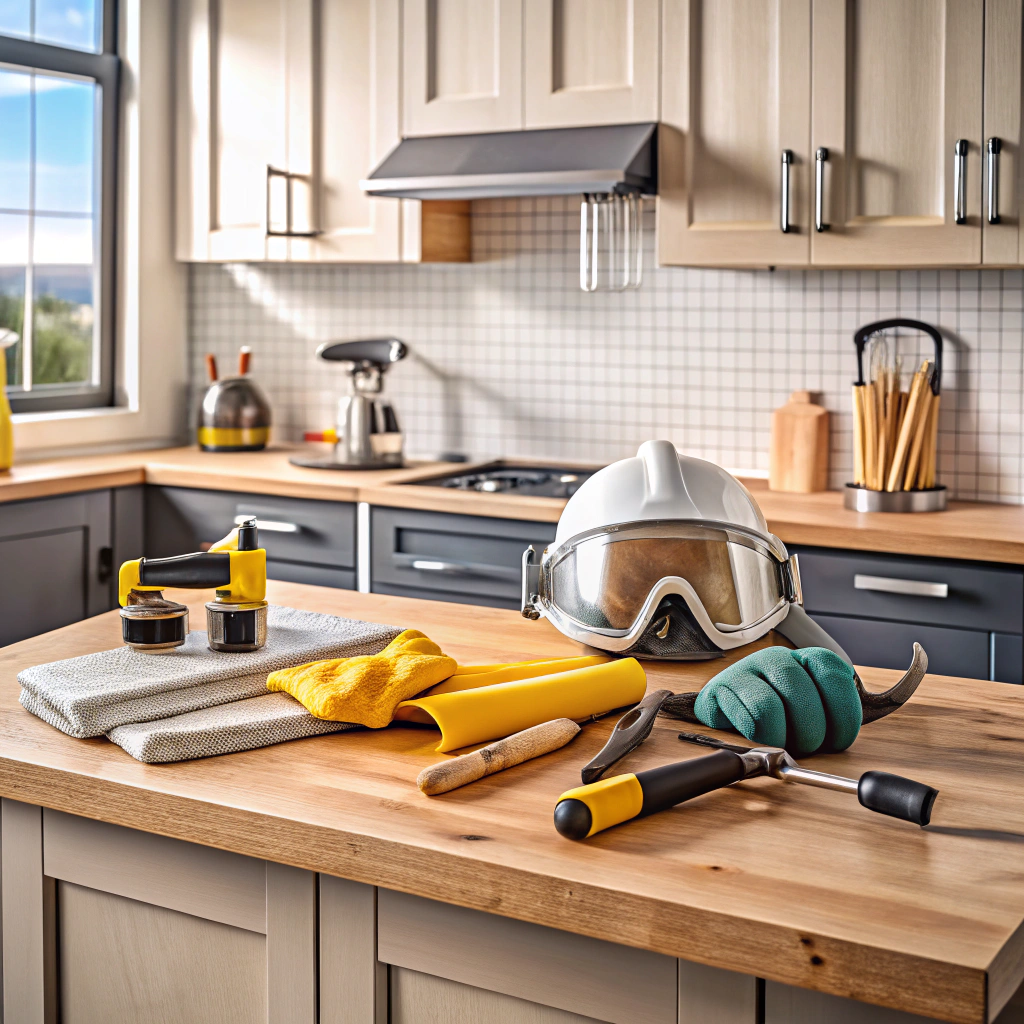Last updated on
Discover the importance of hiring an architect for your kitchen remodel and how their expertise can transform your space into a functional and visually appealing culinary oasis.
Are you planning to remodel your kitchen but not sure whether or not you need an architect? It’s a common dilemma that homeowners face when embarking on a home renovation project. While some may think it’s unnecessary to hire an architect for a kitchen remodel, others believe it’s crucial for achieving their dream design.
In this article, we’ll explore the benefits of hiring an architect and help you decide if it’s the right choice for your kitchen renovation project. So let’s dive in!
What's Inside
Understanding Kitchen Remodels

Before deciding whether or not to hire an architect for your kitchen remodel, it’s essential to understand what a kitchen remodel entails. A kitchen renovation is more than just updating appliances and cabinets; it involves rethinking the entire space’s functionality and design.
It requires careful planning, budgeting, material selection, and coordination with contractors.
A successful kitchen remodel should improve the room’s flow while maximizing storage space and creating a visually appealing environment that reflects your style preferences. Understanding these key elements of a successful renovation will help you determine if hiring an architect is necessary for achieving your desired outcome.
Assessing Your Needs and Budget

Start by asking yourself what you want to achieve with the renovation project. Do you need more storage space? Are you looking for a more functional layout? Or do you simply want a modern update?
Once you have identified your goals, consider how much money is available in your budget. A kitchen remodel can be costly, so it’s crucial to determine how much money is available before starting any work.
It’s also important to keep in mind that hiring an architect will add additional costs on top of the overall remodeling expenses. However, their expertise can help ensure that every dollar spent goes towards achieving the desired outcome.
Understanding a Kitchen Remodel’s Scope
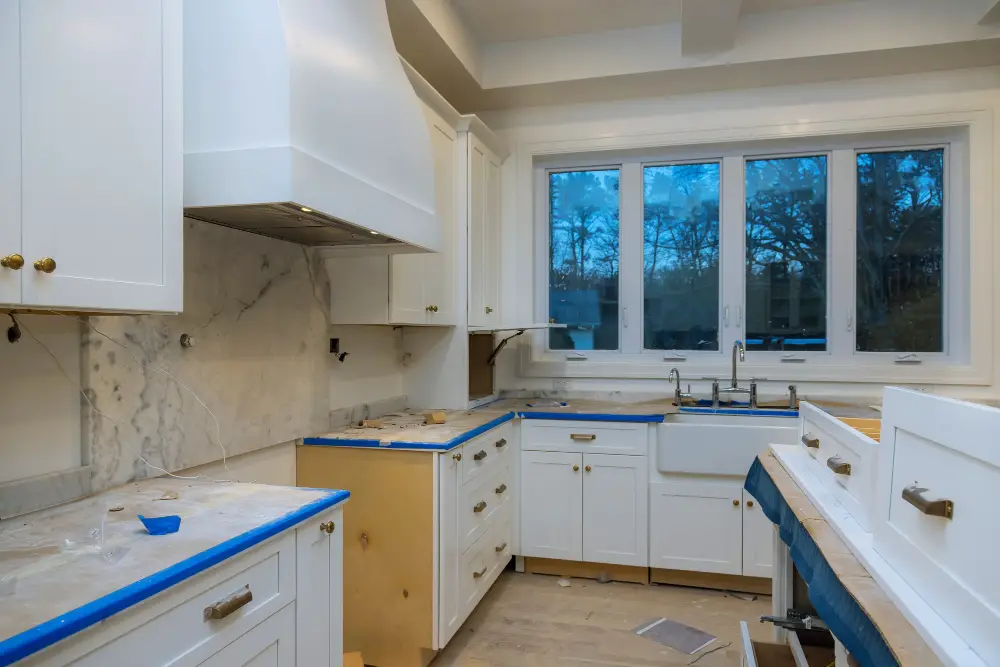
A kitchen remodel can range from a simple cosmetic update, such as replacing countertops and cabinets, to a complete overhaul that involves structural changes and reconfiguring the layout.
The scope of your project will depend on several factors such as budget, timeline, personal preferences and needs. For instance, if you’re looking for more storage space or want to add an island in your kitchen but don’t have enough room currently available then you may need some structural changes which require professional help.
It’s essential that you assess what exactly needs changing in your current setup before starting any work. This will help determine whether hiring an architect is necessary based on the complexity of the job at hand.
In general terms though if there are no major modifications required like moving walls around or adding new windows/doors etc., then it might be possible for homeowners with DIY skills (or those who prefer doing things themselves) could handle most aspects without needing outside assistance from professionals like architects/designers etc.
DIY Vs. Hiring Professionals

While DIY projects can be a great way to save money and add a personal touch, they may not always be feasible for larger-scale renovations that require specialized skills and knowledge.
Hiring professionals such as architects, contractors, and designers can ensure that your kitchen remodel is done correctly from start to finish. They have experience in managing complex renovation projects while adhering to building codes and regulations.
They have access to resources such as high-quality materials at discounted prices.
On the other hand, DIY projects may work well for smaller updates like painting cabinets or replacing hardware but could lead you down an expensive path if things go wrong during more significant changes like moving walls or installing new appliances.
Ultimately deciding between DIY vs hiring professionals depends on your budget constraints and skill level.
Role of an Architect

They are trained to create functional spaces that meet the needs of their clients while also adhering to building codes and regulations. When it comes to kitchen remodels, an architect can play a crucial role in ensuring that your project runs smoothly from start to finish.
The primary role of an architect in a kitchen remodel is to help you design the space according to your specific needs and preferences. They will work with you closely throughout the entire process, from assessing your budget and determining what changes need making through creating detailed plans for construction.
Architects have extensive knowledge about materials selection, space planning as well as coordinating with contractors during construction phases which makes them invaluable assets when it comes time for selecting finishes or deciding on structural changes such as removing walls or adding windows.
Architect Vs. Kitchen Designer: Differences Explained
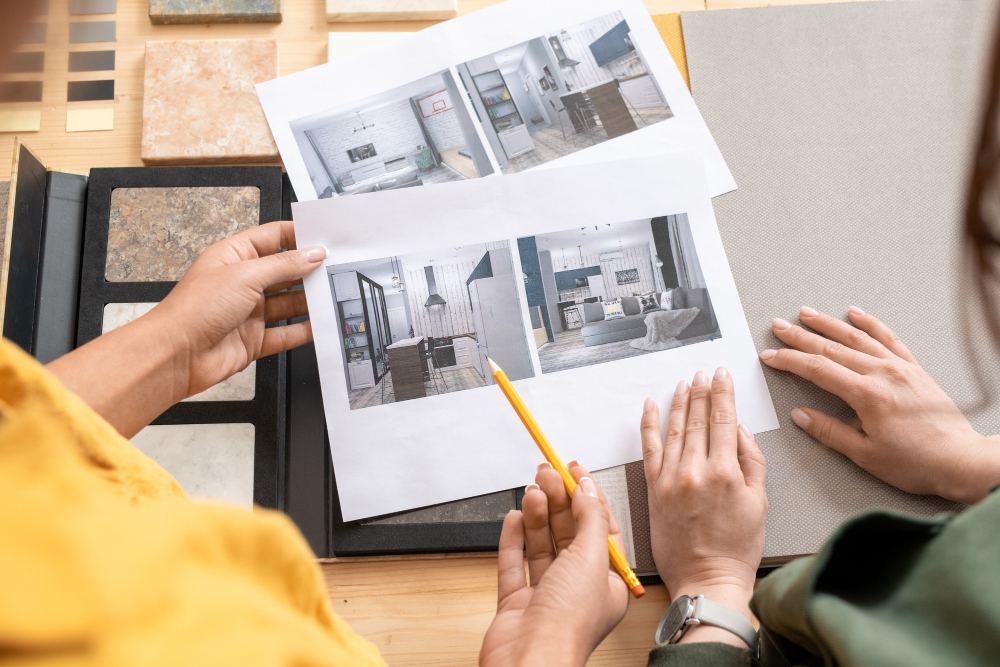
While both professionals can help you achieve your dream design, they have different areas of expertise.
A kitchen designer specializes in creating functional and aesthetically pleasing kitchens. They focus on selecting materials, finishes, appliances, and fixtures that fit within your budget while meeting your needs.
Kitchen designers are skilled at space planning and can optimize the layout for maximum efficiency.
On the other hand, an architect has a broader scope of work that includes designing spaces beyond just kitchens. Architects are trained to consider structural changes such as removing walls or adding windows to improve natural light flow throughout the home.
Architects also have knowledge about building codes and regulations which is important when making any significant changes during a renovation project like moving plumbing or electrical systems around in order to accommodate new features like islands or built-in ovens.
Assessing the Need for an Architect

If you’re planning a minor renovation that involves only cosmetic changes such as painting cabinets, replacing countertops, or updating appliances, then hiring an architect may not be necessary. However, if you’re looking to make significant structural changes like removing walls or adding windows and doors that require permits from local authorities – then hiring an architect is highly recommended.
An experienced architect can help you navigate through building codes and regulations while ensuring that all aspects of the design meet safety standards. They also have expertise in space planning which is crucial when designing a functional kitchen layout with optimal flow.
Moreover, suppose you want a unique design tailored specifically to your preferences rather than choosing from pre-designed templates offered by contractors or designers. In that case, working with an experienced architectural firm will provide more flexibility in terms of customization options.
Benefits of Hiring an Architect

Architects are trained professionals who specialize in designing and planning spaces, including kitchens. They have the expertise to create functional and aesthetically pleasing designs while also considering factors such as safety, building codes, regulations, and permits.
One of the most significant benefits of hiring an architect is their ability to help you achieve your dream design while staying within budget constraints. They can provide valuable insights into material selection based on durability and cost-effectiveness without compromising on style or quality.
Architects also play a crucial role in space planning by optimizing every inch of available space for maximum functionality. This includes creating efficient traffic flow patterns between workstations like sinks, stovetops, refrigerators among others.
Another benefit is that architects coordinate with contractors throughout the entire remodeling process from start to finish ensuring everything runs smoothly according to plan avoiding costly mistakes along the way.
Pros and Cons of Hiring an Architect

Here are some pros and cons to consider before making a decision:
Pros:
- Expertise: Architects have the knowledge, skills, and experience to design functional spaces that meet building codes, regulations, safety standards while incorporating your personal style.
- Design Options: An architect can provide you with multiple design options based on your needs, budget constraints while ensuring that the final product is aesthetically pleasing.
- Project Management: An architect can manage all aspects of the project from start to finish including coordinating with contractors or other professionals involved in the renovation process.
Cons:
- Cost: Hiring an architect may increase overall costs as their fees are typically higher than those charged by kitchen designers or contractors.
- Time-consuming Process: The process of hiring an architect involves several steps such as interviewing potential candidates which could be time-consuming.
Ultimately it’s up to you whether or not hiring an architect is worth it. If you’re looking for a unique space tailored specifically to your needs then working with one might be beneficial.
What Does It Cost to Hire an Architect?

The answer varies depending on several factors such as the scope of work, location, and experience level of the architect.
Architects typically charge either a flat fee or an hourly rate for their services. A flat fee is usually based on a percentage of the total project cost and can range from 5% to 20%.
On average, homeowners can expect to pay around $100-$200 per hour for an experienced architect’s services.
It’s important to note that while hiring an architect may seem like another expense added onto your already costly renovation project; it could save you money in the long run by avoiding costly mistakes or design changes down-the-line.
When deciding whether or not to hire an architect, consider your budget and what aspects are most important in achieving your dream kitchen design.
Architect’s Role in Permits and Regulations

This is where an architect can come in handy. They have the knowledge and expertise needed to navigate through the complex world of building codes, zoning laws, and permit requirements.
An architect will work with you from start to finish on your kitchen remodel project. They’ll help you obtain all necessary permits for construction as well as ensure that your design meets local building codes and regulations.
Architects also play a crucial role in ensuring that any structural changes made during the renovation process comply with safety standards set by regulatory bodies such as OSHA (Occupational Safety & Health Administration).
Working With Building Codes and Regulations

These codes ensure the safety of your home and its occupants. An architect can help you navigate these requirements by providing guidance on what permits are needed for specific projects, as well as ensuring that all work is up to code.
Working with an architect means having a professional who understands the local building codes and regulations in your area. They will be able to guide you through the process of obtaining necessary permits for structural changes or electrical work required during a remodel.
An experienced architect will also know how much space is required between appliances or countertops according to code standards, which can prevent costly mistakes down the line. By working with an architect from start-to-finish on your kitchen remodel project, they’ll make sure everything meets legal requirements while still achieving design goals.
The Importance of Space Planning in Kitchen Remodels
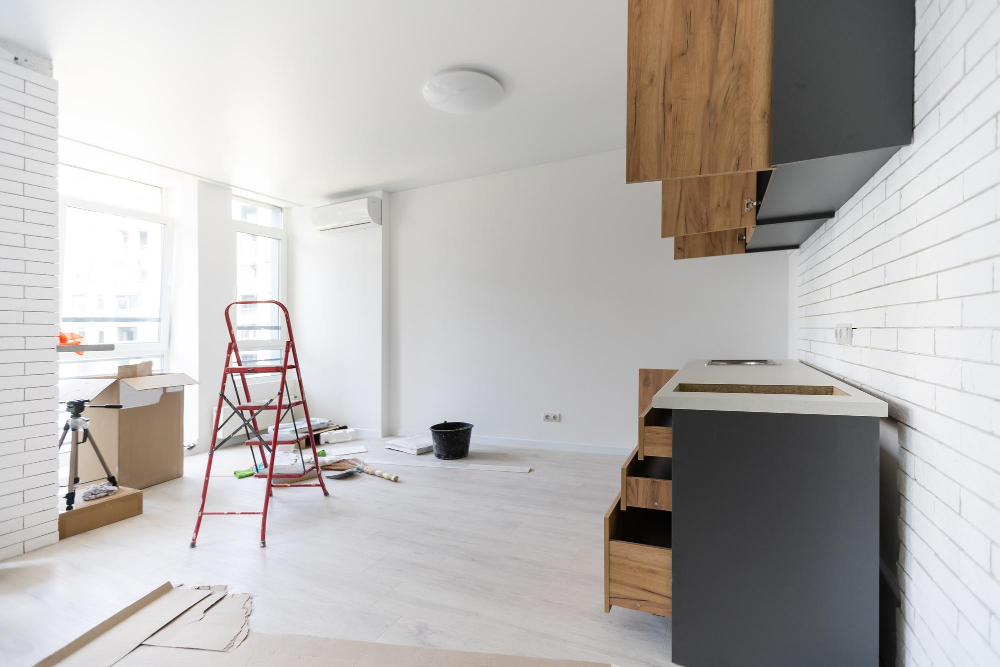
It’s essential to ensure that your new kitchen design meets your functional needs while also being aesthetically pleasing. An architect can help you create an efficient and practical layout for your kitchen, taking into account factors such as traffic flow, work zones, and storage requirements.
During the initial consultation with an architect, they will assess how you currently use your existing space and identify areas that need improvement. They’ll then develop a plan that maximizes every inch of available space in the room while ensuring it aligns with local building codes.
The importance of proper space planning cannot be overstated when it comes to creating a functional and beautiful kitchen design. A well-planned layout ensures there’s enough counter workspace for food preparation or entertaining guests without feeling cramped or cluttered.
Moreover, good spatial organization helps minimize unnecessary movement between different areas in the room by placing appliances strategically close together based on their function (e.g., sink near dishwasher). This way saves time during meal prep since everything is within reach.
Establishing a Design Plan

This will help ensure that everyone involved in the project is on the same page and working towards a common goal. The design plan should include details such as layout, materials, finishes, lighting fixtures and appliances.
When establishing your design plan with an architect or designer it’s important to consider both form and function. You want your new kitchen not only look great but also be practical for everyday use.
Your designer can help guide you through this process by asking questions about how you currently use your space and what changes would make it more functional for you. They may suggest features like additional storage solutions or better traffic flow patterns based on their experience designing kitchens.
It’s also important to keep in mind any specific needs or preferences that are unique to yourself or family members who will be using the space regularly – such as accessibility requirements if someone has mobility issues.
Material Selection and Space Planning
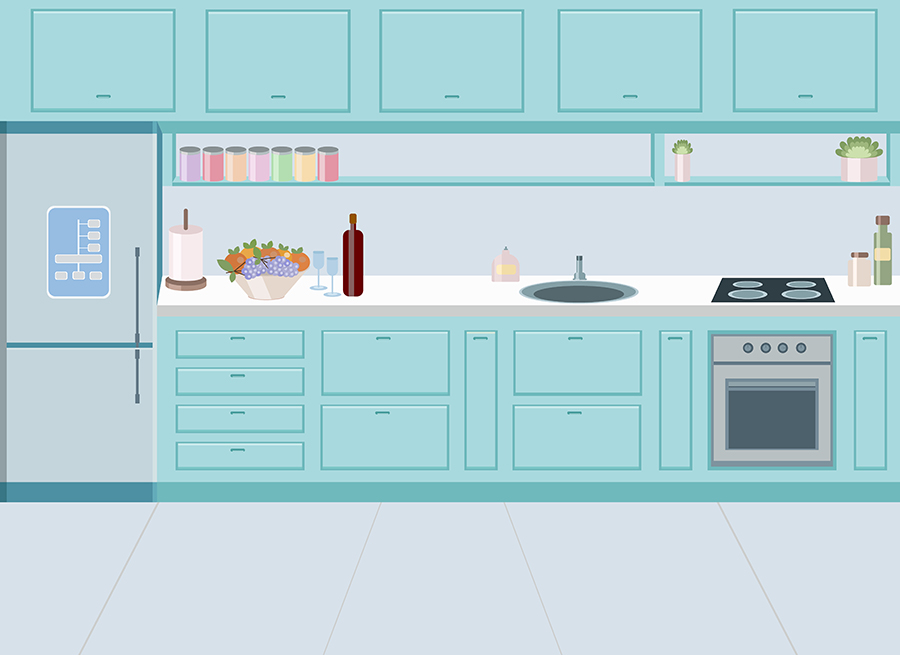
An experienced architect will guide you through the process of selecting materials that suit your style, budget, and functional needs. They’ll also help you plan the layout to maximize space utilization while ensuring optimal functionality.
When it comes to material selection, there are numerous options available in terms of finishes, colors, textures and patterns for cabinets countertops backsplashes flooring etc. An architect can provide valuable insights into which materials would work best for your specific project based on their durability maintenance requirements cost-effectiveness as well as aesthetic appeal.
Space planning is equally important when remodeling a kitchen since it determines how efficiently the space is used. A skilled architect will analyze your existing floor plan or create one from scratch if necessary to ensure that every inch counts in terms of storage capacity traffic flow lighting ventilation etc., all while keeping within building codes regulations.
Coordinating With Contractors

Architects work closely with contractors throughout the construction process and act as a liaison between you and the contractor. They ensure that all aspects of the design plan are executed correctly, from material selection to space planning.
Architects also help manage timelines and budgets by working closely with contractors on scheduling tasks such as demolition, electrical work, plumbing installation or any other necessary structural changes. This coordination ensures that everything is done according to plan without delays or unexpected expenses.
It’s essential for homeowners not only to choose a reputable architect but also select a reliable contractor who can execute their vision effectively while staying within budget constraints. The right team will make sure your kitchen renovation project runs smoothly from start-to-finish.
Architects and Structural Changes

If you’re planning on making significant structural changes, such as removing walls or adding windows, an architect can ensure that these modifications won’t compromise the safety or stability of your home. They will also work with engineers and contractors to create detailed plans for any required reinforcements.
An architect’s expertise in understanding load-bearing walls, beams, columns and other critical components is essential when it comes to making significant alterations in a home’s structure. They’ll assess whether certain elements need reinforcement before proceeding with construction work.
Moreover, architects have experience working within local building codes and regulations which dictate what types of modifications are allowed in residential properties. This knowledge ensures that all proposed design solutions comply with legal requirements while still meeting your aesthetic goals.
Common Kitchen Remodel Mistakes to Avoid

One of the most significant errors homeowners make is underestimating the scope of their renovation project. It’s essential to have a clear understanding of what you want and need in your new kitchen before starting any work.
Another mistake is not setting aside enough money for unexpected expenses or changes in design plans. A good rule of thumb is to set aside 10-20% more than your initial budget estimate.
Failing to hire professionals such as architects and contractors can lead to costly mistakes down the road. Professionals bring expertise and experience that will ensure your remodel meets building codes, regulations, and safety standards while also achieving optimal functionality.
Lastly, overlooking small details like lighting fixtures or cabinet hardware may seem insignificant but can significantly impact the overall look and feel of your new space.
Selecting the Right Architect for Your Kitchen Remodel

With so many architects out there, it can be overwhelming to choose the right one. Here are some tips on how to select an architect that fits your needs:
1. Look for experience: Choose an architect who has experience in designing kitchens and has a portfolio of completed projects.
2. Check credentials: Make sure the architect you’re considering is licensed and registered with their state’s licensing board.
3. Read reviews: Look up online reviews from previous clients or ask for references from past projects.
4. Communication skills: Ensure that you feel comfortable communicating with them, as they will be working closely with you throughout the project.
5. Budget considerations: Discuss budget upfront and make sure they have experience working within similar budgets before hiring them.
Questions to Ask an Architect Before Hiring

Here are some crucial questions that can help you determine if an architect is a good fit for your project:
- What experience do you have with kitchen remodels?
- Can I see examples of similar projects that you’ve completed in the past?
- How do we communicate throughout this process, and how often should I expect updates from you?
- What is your design philosophy or approach when working on a project like mine?
- How long will it take to complete my project, and what factors could impact its timeline?
- What permits or regulations need consideration before starting work on my kitchen renovation?
Asking these questions can give insight into their expertise level and communication style while also helping establish expectations upfront about timelines, budgeting concerns as well as any potential roadblocks along the way.
Hiring an architect may seem daunting at first glance but taking time upfront to research architects’ credentials and asking them relevant questions will make all difference in ensuring successful completion of your dream Kitchen Remodel!
FAQ
Do you need an architect to redesign a kitchen?
No, an architect is not required to redesign a kitchen, but they can improve the end result, especially if the new kitchen plans significantly differ from the existing space.
Is it worth getting an architect for a renovation?
Yes, it is worth getting an architect for a renovation if the project is complex, as their engineering skills and expertise can provide valuable guidance.
What is the most expensive part of a kitchen remodel?
The most expensive part of a kitchen remodel is typically the cabinets, with an average price of around $15,000 for new cabinets and potentially higher costs depending on materials used.
How much do architects charge for renovations?
Architects typically charge 15%-20% of the project cost for renovations, but the exact fee may not be known until the project is complete, potentially causing budgeting difficulties.
What are the benefits of hiring an architect for a kitchen remodel project?
Hiring an architect for a kitchen remodel project provides benefits such as professional design, efficient space utilization, and expertise on materials and local regulations.
How does working with an architect impact the overall renovation timeline?
Working with an architect can impact the overall renovation timeline by potentially stream-lining the process, ensuring adherence to building codes, and providing expert design solutions.
In which scenarios is it essential to involve an architect in a kitchen remodeling project?
An architect is essential in a kitchen remodeling project when the renovation involves altering the structure, layout, or significant functions of the space.




